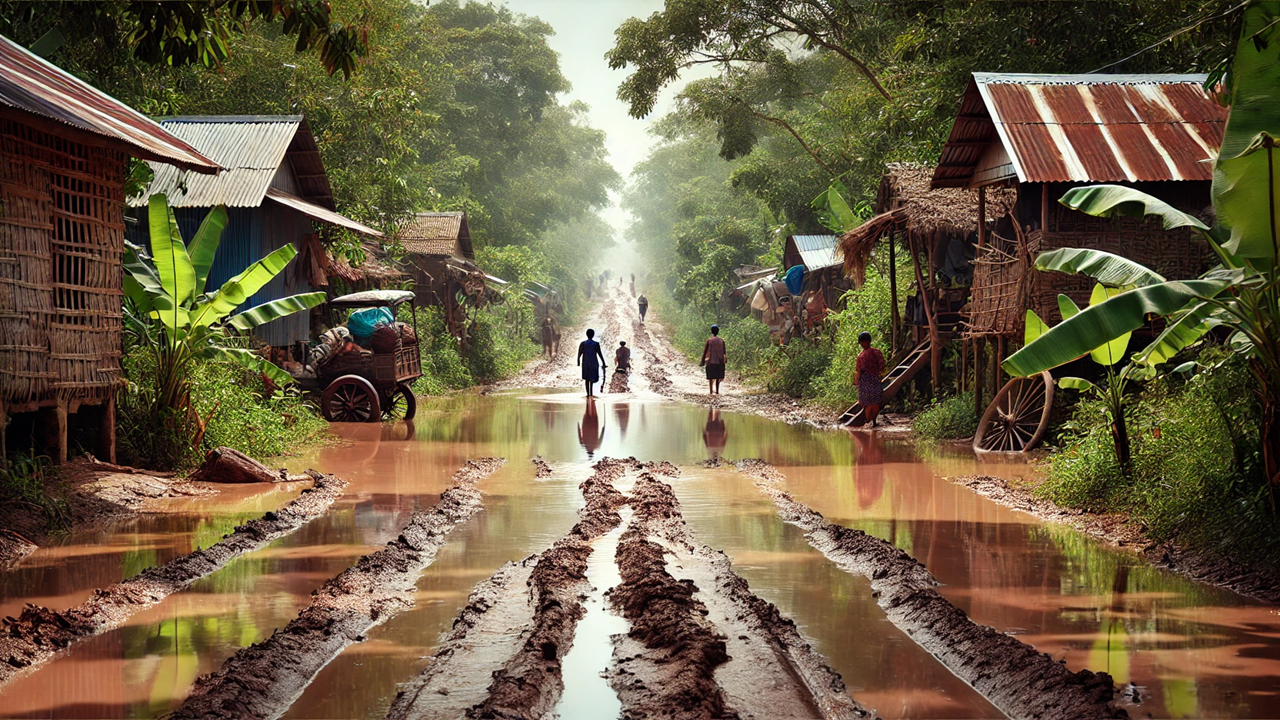WMO Boosts Bangladesh’s Flood and Drought Resilience with CAP and EWS Support
The workshop aimed to equip stakeholders with the technical knowledge and practical skills required to produce standardized warning messages using CAP.

- Country:
- Bangladesh
The World Meteorological Organization (WMO), in collaboration with key Bangladeshi institutions, is bolstering the country’s resilience against floods and droughts by promoting the adoption of the Common Alerting Protocol (CAP) and advancing the implementation of an End-to-End Early Warning System (EWS). These efforts are being carried out under the SIDA-funded “Early Warnings for All” (EW4All) multi-stakeholder accelerator, specifically targeting Least Developed Countries (LDCs) and Small Island Developing States (SIDS).
CAP Workshop: Building Skills for Impactful Alerting
On 20–21 April 2025, a pivotal workshop on the Common Alerting Protocol was hosted in Dhaka, organized in partnership with the Bangladesh Meteorological Department (BMD) and the Bangladesh Water Development Board (BWDB). The session drew more than 30 participants, representing national agencies such as BMD and BWDB, disaster risk management authorities, international bodies including the International Federation of Red Cross and Red Crescent Societies (IFRC) and the International Telecommunication Union (ITU), as well as the Bangladesh Red Crescent Society.
The workshop aimed to equip stakeholders with the technical knowledge and practical skills required to produce standardized warning messages using CAP. Participants learned how to craft clear, concise, and actionable alerts in CAP format and disseminate them effectively to relevant actors—including communities, responders, and media—before, during, and after hydrometeorological events.
The session also emphasized the importance of anticipatory action: warning messages are not merely informational tools, but catalysts for early decision-making and life-saving response. Participants are now expected to take forward their learnings by drafting a national CAP implementation plan, complete with standard operating procedures (SOPs) for message formulation and dissemination.
Operationalizing CAP in Bangladesh
WMO reaffirmed its commitment to supporting both BMD and BWDB in integrating CAP into national alert systems, with a focus on hydrometeorological hazards such as heavy rainfall, floods, and droughts. A key element of this support involves linking Bangladesh’s alerts to the WMO’s Severe Weather Information Centre (SWIC), ensuring that warnings are not only standardized and timely but also accessible to global stakeholders and regional partners.
By achieving CAP compliance and integration with SWIC, Bangladesh will be better positioned to disseminate real-time, multi-hazard early warnings, thus enhancing preparedness and minimizing the impacts of disasters on vulnerable populations.
Strategic Planning: Toward a National Early Warning System
Immediately following the workshop, a high-level strategic meeting was held involving the same core partners. The objective was to review and finalize the WMO’s Assessment Matrix on an End-to-End Early Warning System (EWS) for Floods and Droughts in Bangladesh.
This comprehensive evaluation framework provided a snapshot of the current state of early warning capabilities in the country, identifying strengths, existing gaps, and areas requiring targeted investment. Stakeholders reviewed each component of the early warning chain—from risk knowledge and monitoring to forecasting, warning dissemination, and response capability.
Crucially, the meeting facilitated the co-development of a roadmap to strengthen national systems, informed by local knowledge and global best practices. The outcomes of this assessment will directly shape a forthcoming project—set to launch later this year—that aims to institutionalize and expand early warning infrastructure and protocols across the country.
A Unified Vision for Climate Resilience
These combined efforts reflect the broader ambitions of the EW4All initiative, a global campaign spearheaded by the United Nations to ensure that every person on Earth is protected by an early warning system by 2027. For Bangladesh—a nation highly vulnerable to climate extremes—achieving this vision is not only about improving alerts but also about transforming how communities anticipate and respond to crises.
Through sustained support from WMO and other international partners, and with strong leadership from BMD and BWDB, Bangladesh is laying the groundwork for a more resilient and responsive future.










